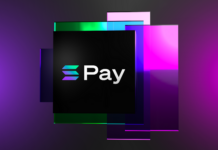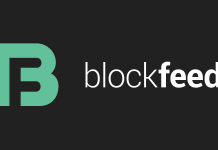Interview with Reuben Yap, community and communications manager of Zcoin.
Can you tell us about yourself and your role in Zcoin?
I’ve been involved in Zcoin shortly after its launch in October 2016.
I have always been a big privacy coin supporter and before this ran a successful VPN business called BolehVPN.
I am a practising lawyer specializing in advising on institutional frameworks. In my spare time, I teach Aikido, box a bit and play some Overwatch (Mercy and Reinhardt).
Within Zcoin, I’m the community and communications manager but have been helping out wherever I can be it organizing team meetings or software testing. I also make Zcoin’s weekly community updates, social media management, deal with exchanges, wallet providers, explore partnerships and also serve as the key contact for our English speaking investors.
What were the key checkpoints or events for Zcoin in its development?
We are a new coin so we’ve had just about a year of development.
The proof of work algorithm MTP although was not deployed on the main net took up a good

part of last year and we had a working version on testnet. The deployment on main net was held off after an academic paper pointed out some weaknesses in MTP which lead us to sponsor a USD 12,500 MTP bounty program which lead to very good submissions from Marc Bevand and Fabien Coelho and the new MTP paper is being revised and slated for publication in December 2017.
The core upgrade from 0.8 to 0.13 was really big for us which brought Zcoin’s performance up to par and gave a whole range of improvements including TOR stream isolation support, much faster sync times and greater reliability.
Our updates to the Zerocoin library have also been very important for us in improving Zerocoin and making it more secure and we just rolled this out a few days ago and further details of this update will be further released soon.
Znodes would also be a big release for us as we move into an incentivized node scheme slated for release in late November 2017.
What are the key features of Zcoin and what is the key difference between Zcoin and other privacy centred cryptocurrencies?
The two key pillars of Zcoin are privacy and decentralization. What most other coins do with privacy is through obfuscation of transactions through the use of other dummy transactions or other people’s transactions to hide your transaction. These approaches have limited anonymity sets and have their own set of trade-offs either from scalability or the need for others to actively mix funds or provide funds for mixing. Research has shown the implementation of PrivateSend can be deanonymized (https://arxiv.org/pdf/1709.02489.pdf) and even Cryptonote has seen weaknesses (https://eprint.iacr.org/2017/338.pdf) so there is a growing need for better privacy schemes.
The Zerocoin protocol used in Zcoin works differently by destroying the coin and then having the user redeem a new coin with no transaction history thus wiping the slate clean. To redeem a coin, the user produces a mathematical proof that he did destroy coins but without revealing which coin he destroyed hence it’s a zero-knowledge proof. So unlike obfuscation methods where the real transaction link is still somewhere in there and is merely obscured, the Zerocoin protocol as used in Zcoin completely breaks the link between the transactions on the blockchain.
Our current implementation fully works with TOR and allows TOR hidden nodes as well so we have the privacy of IP addresses also covered.
The only other privacy mechanism out there that does this is the Zerocash protocol as used in Zcash but it relies on many cryptographic assumptions and experimental cryptography. Furthermore, flaws or a discovery of its initial parameters (what they call toxic waste) can allow coins to be forged and such forgery cannot be detected. In Zcoin, the supply remains always auditable.
A more detailed comparison can be seen here: https://Zcoin.io/Zcoins-privacy-technology-compares-competition/
For decentralization, we believe in the importance of a fair Proof of Work and we believe MTP is a promising technology in achieving this. We currently use our own unique hashing algorithm Lyra2z which allows both CPUs and GPUs to participate in securing our blockchain and due to use of shared memory, generally runs cooler and is therefore great for home mining or those with high electricity rates. This however only a transition algorithm and MTP is designed to be as ASIC resistant as possible.
It does this by requiring miners to use immense amounts of RAM from a reference implementation of 2 GB to even 10 GB while remaining lightweight to verify by nodes. The huge use of RAM also discourages botnets since it will significantly affect performance of the infected computer. In comparison, Equihash, as used in Zcash, uses 144MiB of RAM per mining thread, Cryptonight uses 2MB while Scrypt uses a paltry 128 kb. In fact, the authors of Equihash who are also the authors of MTP believe MTP to be a superior proof of work to Equihash.
This is also why Znodes is an important part of the puzzle by incentivizing people to host full nodes so that more copies of the full blockchain will be made available while not requiring users to trust them as all their information is still independently verifiable.
Will Zcoin implement side chain or smart contract technology in the future?
This is not out of the question and Poramin has expressed his interest in doing this but we are focusing right now on getting the user experience and our privacy right. There has to be a real benefit to Zcoin users in integrating smart contracts to it and there are plenty of other coins out there that do smart contracts.
Being based on Bitcoin core allows us to also take advantage of any developments such as the Rootstock smart contract platform or the Lightning network.
We are also looking into the possibility of employing sidechains such as Mimblewimble that will allow scalable private transactions while retaining Zerocoin on the main chain while retaining all the scripting abilities of Bitcoin that enable things like atomic swaps.
What is the Zerocoin library?
Libzerocoin is a C++ library that implements the core cryptographic routines of the Zerocoin protocol. It was created as a proof of concept development software but has subsequently not been looked at into detail until now with our work with Tim Ruffing, a cryptographer who has contributed a great deal into making libzerocoin secure. Our work in improving the Zerocoin library has closed off many vulnerabilities and made Zerocoin much more secure. We are still actively looking into ways to further improve libzerocoin and also our Zerocoin implementation.
We are going into our Zerocoin v2 implementation on block 60,000 and we are already testing our new Zerocoin v3 implementation that we hope to implement in the coming months.
There is a project to “connect” Zcoin with Ethereum, can you share more information?
This is our ZEth project which isn’t really a connection of Zcoin on Ethereum but more of a Zerocoin mixer on Ethereum which allows our technology to be used as a showcase of Zcoin’s technology and to tap into Ethereum’s amazing community. Zerocoin mixes will always be cheaper on Zcoin and privacy a bigger focus though we are exploring ways in which Znode owners can earn additional income by assisting to verify Zerocoin mixes on the Ethereum network.
The big aim is to also enable atomic cross chain transactions so that switching Ethereum to Zcoin and vice versa is trustless and without the need for intermediaries.
What are the main advantages of changing the mining algorithm to MTP, who are the main beneficiaries of these change?
MTP allows the average user to participate in mining Zcoin without having to rely on overly specialized equipment but instead of commodity hardware.
Is Zcoin accepted by any merchants to your knowledge?
Yes we have a few merchants already accepting Zcoin from phone shops, cafes, VPN services, electrical wiring and even lithography services. We’re compiling a list of merchants soon!
What are the Znodes?
Znodes are similar to a masternode system as implemented by Dash but with some key differences in that Zerocoin verification does not require the trust of the nodes unlike in Dash which requires users to place a certain degree of trust in the masternodes not to record data or to see how the mixing is being done.
It incentivizes people to host full versions of the node which makes Zcoin more censorship resistant and a more resilient network. It also serves as a building block for potentially other services such as BIP75 or even P2Pool nodes.
Later on, we are also exploring the use of Truebit technology (https://truebit.io/) in Znodes to verify Zerocoin on Ethereum transactions and allow a potential additional income stream for Znodes beyond just the block reward.
What are the elements that will determine the number of coins needed for a Znode?
The price of Zcoin, maintaining it within the reach of the average person yet the rewards remain motivating enough to host a Znode, where the rewards would be cut from, and the number of nodes it will provide based on current supply.
Do you have a specific timeline when you will announce the total Zcoins needed to run a Znode?
Nothing just yet, we are finalizing some calculations and economic considerations and discussions with our stakeholders. Once that is completed we will announce it but will time it so as to not to be drowned out by Segwit2X news.
When will Znodes go live?
We are on track for release for late November 2017 barring any unforeseen circumstances.
The crypto sphere has 1000s of projects today what advice do you have for the readers to find the best project (needle) in the haystack?
I don’t think it’s possible to find the ‘best’ project but there are always many gems out there. Gathering enough technical knowledge to evaluate a coin rather than just relying on tweets, BCT, social media or other people’s opinions (which are often uninformed) is a sure way to get mislead. Personally, this is why I am way about ICOs where there is little product to evaluate and funds are raised off mainly hype, a fancy website and advisors and whitepapers. For more longer-term investments, focus on a particular niche of coin that you are interested in such as privacy, smart contracts, storage, etc and then do your research and understand the tech!
For more information please visit: https://Zcoin.io
We thank Reuben Yap, for the interview.











